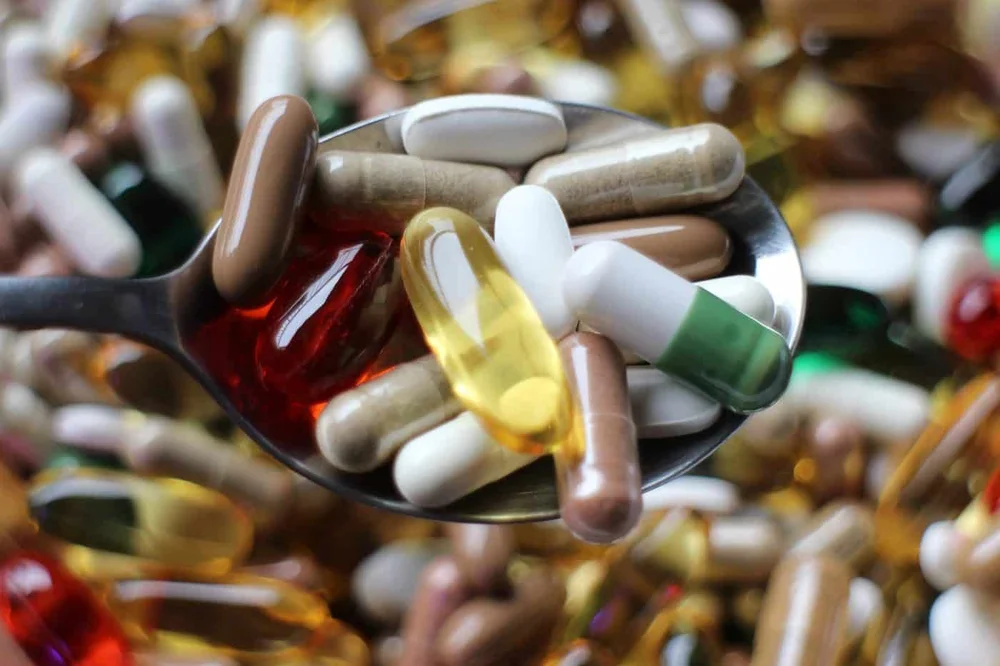Here Are Some of the Top Reasons to Avoid Forever Chemicals
Medically Reviewed by Dr. Nicole Avena
Whether you realize it or not, you’re constantly being exposed to toxins.
Dangers of Toxins
Every day, you’re subjected to a host of chemicals, pesticides, fumes, and personal products that can be damaging to the brain and body. Common toxins can be absorbed through the skin (when you rub in a cream, for example), ingested (when you eat or drink), or inhaled (when you breathe).
Toxins can have a negative effect on practically every part of the body.
Your biological systems eliminate toxins (through enzyme processing mainly by the liver, kidneys, and skin), but when those natural detoxification processes are overwhelmed, major problems can develop.
Toxic effects on the brain include:
- poor memory and concentration
- erratic behavior
- word confusion
- mood issues
- headaches
- cravings
Where Toxins Hide Out
Here are some examples of where you can find toxins in your house.
Beauty Products
The average American woman uses about 12 personal care and cosmetic products daily. The average man uses about 6. Many of these products contain toxic substances.
Cleaning Supplies
As with personal care products, many cleaning supplies are filled with toxins. Use an app like Think Dirty to identify toxic products and purge them from your bathroom and kitchen.
Mold
Mold and fungi thrive on drywall, wood, and other soft materials and flourishes in dark and moist environments. A small drip from a leaky toilet, shower, or sink is all it takes to create a major mold problem.
Substances
Toxic brain exposure, from smoking or alcohol/drug abuse, is linked to accelerated mental decline and an increased risk for memory problems.
While these toxins are well-known, others are less obvious and can come from unexpected places. Among these hidden toxins are “forever chemicals.”
What Are Forever Chemicals?
The scientific term for forever chemicals is PFAS (per- and polyfluoroalkyl substances). These manmade chemicals are common in consumer products that are grease-, stain-, and water-resistant. This includes non-stick cookware and waterproof clothing.
So, why are they called forever chemicals?
Because they’re practically indestructible.
Unfortunately, these toxins are difficult to avoid since they’re in so many products we use every day. And here’s the really bad news…they’re inside us too.
A Brief History of PFAS
In 1946, the DuPont manufacturing company introduced the non-stick cookware known as Teflon. Numerous fluorinated chemicals were created based on Teflon, and they were used in a variety of products. A short time later, 3M became the main manufacturer of PFAS products.
In 1950, 3M studies confirmed that PFAS could pollute the human blood. By the 60s, joint 3M and DuPont animal studies showed that PFAS were harmful to health. Both companies found a link between PFAS and extreme illness in many of their employees in the 80s.
The Teflon chemical was discovered in the drinking water in Parkersburg, West Virginia in 2001. This led to a class-action lawsuit against DuPont, which knew PFAS were hazardous to its workers and the local community. The lawsuit initiated several studies, some of which link Teflon to serious medical conditions.
The Problem with PFAS
According to one health expert, PFAS are harmful for three main reasons:
- PFAS are extremely hard to break down in the environment and in our bodies.
- They’re hard to contain because they move through the environment rapidly.
- Even low levels of exposure to PFAS can be damaging to our health.
As if that isn’t bad enough, many manufacturers choose not to disclose the use of PFAS in their products.
How Do PFAS Impact Health?

- Reproductive problems
- Endocrine disruption
- Weakened childhood immunity
- Increased cholesterol
- Low birth weight
- Severe liver and kidney issues
Many independent studies have shown the negative impact of PFAS on people of all ages. PFAS were found in the breast milk, umbilical cord blood or bloodstreams of 98% of participants in a survey conducted by the Centers for Disease Control and Prevention.
Common Items with PFAS
Keep an eye out for PFAS in these everyday products:
Clothes
Be sure to look for PFAS when purchasing shoes, raincoats, yoga pants, and other accessories. Check the labels on stain- or water-repellent clothes, such as Gore-Tex jackets.
Food
Alarmingly, PFAS have found their way into foods. The chemicals used in many non-stick pans can get into cooked foods. Also, PFAS can find their way into foods via air, soil, and water.
Paper and Cardboard
PFAS are widely used to coat pizza boxes, fast food wrappers, microwave popcorn bags, and many other paper goods to make them grease resistant.
Water
According to data collected by the Environmental Working Group and Northeastern University, PFAS have been found in the water systems of 43 states. Contamination can come from industrial dumping into rivers or lakes, or the seeping of PFAS into groundwater from trash or landfills. It’s believed that over 200 million Americans have PFAS in their drinking water.
Furniture and Carpets
Stain-resistant furniture and carpets treated with Scotchgard, Stainmaster, or other fabric treatments can contain PFAS.
Personal Care Products
Some scientists from EWG have discovered PFAS in 66 personal care products from 15 brands. These products include shampoo, shaving cream, and sunscreen.
Other Home Goods
Many home goods contain PFAS. These include a wide range of items from dental floss to mattress pads to umbrellas. Always check labels for PFAS.
Reduce Toxic Exposure
The more exposure you have to the everyday toxins mentioned above, the more your chances of developing long-term mental or physical health issues.
To minimize your exposure to toxins, it’s a good idea to ditch personal care and cleaning products that contain harmful ingredients. Also, keep an eye out for forever chemicals when purchasing clothes, non-stick pans, and other home goods.
Remember, what goes on your body goes in your body, so do everything you can to remove toxins from your life.
For more information about the dangers of chemicals in fast food wrappers, please watch BrainMD’s Chief Science Officer, Dr. Nicole Avena, in this episode of The Dr. OZ Show.
At BrainMD, we’re dedicated to providing the highest purity nutrients to improve your physical health and overall well-being. For more information about our full list of brain healthy supplements, please visit us at BrainMD.




All helpful but don’t bring in Dr. Oz. That’s not positive or helpful.
Oh yeah Fetterman will be so much better intellecually!